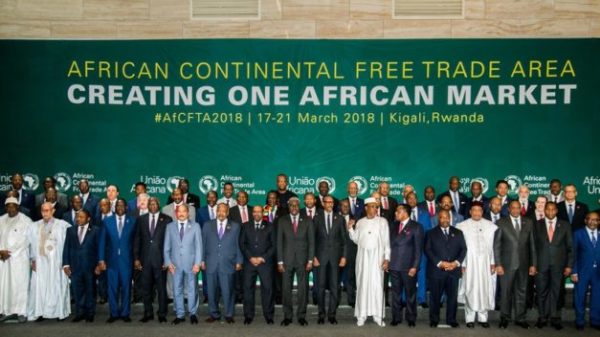Senegal’s director of foreign trade, Fallou Mbow Fall, said the rules of origin (RO) established in the African Continental Free Trade Area (ZLECAF) are a real boon for the industrial and agricultural development of member countries. This, thanks to its formulations that can inform on the tendency of the region to develop the agricultural and industrial sectors.
This announcement was made Tuesday, July 17 in Dakar, on the sidelines of the national consultations on goods and services to be liberalized in this area of free economic exchange.
The director said that the RO will also contribute significantly to the development of intra-African trade, the first objective of the ZLECAF.
Bringing clarification on the technical aspects of ZLECAF ROs, the manager said “they must be simple and precise because it must not be confusing between economic operators, customs administrators and industrialists”. He added that “ROs must be easy to understand, transparent, predictable and stable”.
In the same vein, Fallou Mbow Fall evoked the specific characteristics of ZLECAF ROs, which are at the same time preferential, non-preferential, hybrid and alternative.
For the international trade specialist, ZLECAF ROs are somewhat similar to those established in the Economic Partnership Agreement (EPA), which are hybrid (General and Specific Rules of Origin).
Comparing the ROs of the ZLECAF with those of the Economic Community of West African States (ECOWAS), the official informed that the latter are general and much simpler to apply.
Note that the rules of origin determine the “economic nationality of the goods”. They establish the conditions under which a good may be imported.
ROs play a crucial role in the development of international trade as they allow the establishment of customs taxes and the establishment of trade policies that apply to traded goods.
They are preferential when the property is exchanged between two States having a bilateral or regional agreement, or non-preferential when the property is exchanged between two States that have not concluded such an agreement.
Recall that each regional agreement establishes its own rules of origin. Currently, there are hundreds of different sets of rules of origin applied around the world.
Trending
- ATIDI Discusses Enhancing Trade and Investment in Cameroon and Across CEMAC Zone
- Logistics Open Day: AGL welcomes student finalists
- Safaricom posts $354 million net profit, seeks satellite internet partners
- Corporate culture: ‘A stronger AGL Congo’ program launched
- Airtel Africa partners with Starlink to boost rural internet coverage
- Benin Announces Official Support for the Candidacy of Mauritanian Dr. Sidi Ould Tah for the Presidency of the AfDB
- ATIDI’s Role in CEMAC’s Trade and Investment Finance Strengthened by COBAC’s Zero Risk Weighting Eligibility
- Ethiopia to allow foreigners to own property



